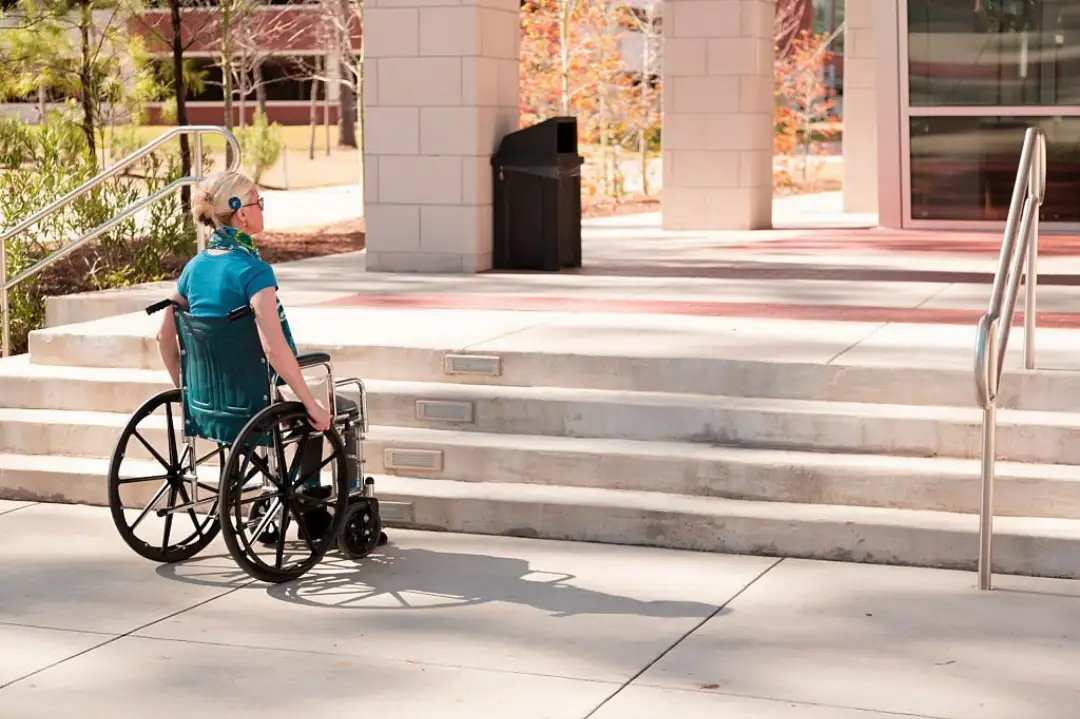What is the Disability Discrimination Act?
The Disability Discrimination Act (DDA) is a legislation that makes it illegal to treat individuals unfairly due to their disability. It covers a wide range of scenarios and protects not only those with current disabilities, but also those who had a disability in the past, those who may develop a disability in the future, and even individuals who are associated with people with disabilities, such as relatives, friends, and carers.
When Can This Law Be Used?

The DDA can be used to ensure fair treatment in various areas of public life. Some of the key areas where this law can be utilized include:
Employment
The DDA safeguards individuals from discrimination in employment. This includes aspects such as job selection, terms and conditions of employment, training opportunities, promotions, and also protection against unfair dismissal.
Education
Individuals are protected from discrimination when enrolling or studying in courses at both public and private educational institutions. The DDA ensures equal access to education for individuals with disabilities.
Accommodation
The DDA prohibits discrimination in the renting or buying of houses or units. It ensures that individuals with disabilities have equal opportunities in the housing market.
Accessing Services
The DDA ensures that individuals with disabilities have equal access to services such as banking, insurance, government services, transportation, telecommunication, professional services (e.g., legal, medical), and services provided by restaurants, shops, and entertainment venues.
Accessing Public Places
The DDA guarantees individuals with disabilities equal access to public places, including parks, government offices, restaurants, hotels, and shopping centers.
Harassment
The DDA protects individuals from harassment based on their disability. Harassment can include offensive comments, actions, or behavior that creates a hostile or intimidating environment.
Understanding Disability Discrimination

Disability discrimination occurs when a person with a disability is treated unfavorably compared to someone without a disability in the same or similar circumstances. There are two main forms of disability discrimination:
Direct Disability Discrimination
Direct disability discrimination happens when a person is treated less favorably due to their disability. For example, if a nightclub or restaurant refuses entry to someone because they are blind and have a guide dog, it would be considered direct disability discrimination.
Indirect Disability Discrimination
Indirect disability discrimination occurs when a rule or policy applies to everyone but has an unfair impact on individuals with a particular disability. For instance, if the only entrance to a building is through a set of stairs, it may be considered indirect discrimination as it prevents wheelchair users from accessing the building.
Exceptions to the Disability Discrimination Act
While the DDA prohibits disability discrimination, there are certain exceptions or exemptions to this law. Some situations where treating someone differently due to their disability may not be against the law include:
-
When a person with a disability cannot perform the inherent requirements of a job, an employer may refuse employment. However, employers must consider reasonable adjustments that can be made to help the person with a disability perform the job.
-
If modifying a building to provide wheelchair access would cause unjustifiable hardship, it may not be against the law to only provide entrance via stairs.
Taking Action Against Discrimination
If you experience discrimination, there are steps you can take to address the situation. You can choose to raise the issue directly with the person or organization involved. If this does not resolve the matter or you feel uncomfortable doing so, you can make a complaint to the Australian Human Rights Commission.
Making a Complaint
To make a valid complaint, it must be reasonably arguable that the events you want to complain about involve unlawful discrimination. You need to provide sufficient details, including what happened, when and where it happened, and who was involved. The complaint can be made in any language, and the Commission can provide assistance with translation or interpretation if needed.
The Complaint Process
Upon receiving a complaint, the President of the Commission can investigate and attempt to resolve the issue through conciliation. The Commission’s role is not to determine whether discrimination has occurred but to facilitate a resolution between the parties involved.
During the complaint process, the Commission may request additional information from both the complainant and the respondent (the person or organization the complaint is against). If conciliation is appropriate, both parties will be invited to participate in an informal process to discuss the issues and find a resolution.
If the complaint is not resolved or discontinued, the complainant has the option to take the matter to the Federal Court of Australia or the Federal Circuit Court, subject to certain circumstances and court permission.
Seeking Further Help and Information

If you require more information or assistance regarding disability discrimination, the Australian Human Rights Commission is available to help. You can contact them through the following channels:
-
Address: GPO Box 5218, Sydney NSW 2001
-
Phone: National Information Service on 1300 656 419
-
Fax: (02) 9284 9611
-
Email: [email protected]
-
Website: www.humanrights.gov.au
Additionally, the Commission offers an online complaint form and can arrange translation or interpretation services if necessary. They are committed to providing information in alternative formats for individuals with vision impairments or other disabilities.
Legal Services
If you are considering making a complaint, it may be beneficial to seek legal advice or contact your trade union. Legal services such as Legal Aid or community legal services can provide free advice and support for issues related to discrimination and harassment.
Disclaimer: The information provided in this guide is intended as a general overview and should not be considered a substitute for legal advice.
In conclusion, the Disability Discrimination Act serves as a crucial legislation that protects individuals with disabilities from unfair treatment. By understanding the rights and provisions outlined in this act, individuals can take necessary steps to address discrimination and ensure equal opportunities for all.
